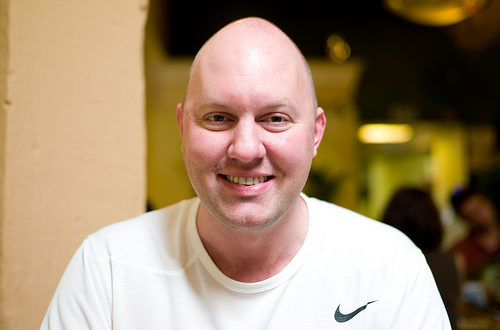Marc Andreessen, the Netscape co-founder and namesake behind venture capital firm Andreessen Horowitz, said that he’s skeptical that efforts globally to recreate the Silicon Valley ecosystem will succeed.
Even the most promising city and rival to the U.S.’s Silicon Valley, Beijing, faces lots of potential complications because laws around contracts aren’t as straightforward as they could be, he said. Outside of the U.S., Beijing is one of the cities that is able to consistently produce tech giants like Baidu (although Alibaba’s headquarters are in Hangzhou and Tencent is based in Shenzhen).
“China should be another United States from an economic standpoint. Beijing should be another Silicon Valley,” he said in an interview at 500 Startup’s Pre-Money conference today in San Francisco. “I think the early indicators have been promising. There are some amazing stories like Alibaba and Tencent.”
Bet he went on, expressing some doubt in the country’s ability to set up a transparent system of contracts and law that make it easy for entrepreneurs to protect their work.
“I worry about the system — the ability to sustain the process and have a system. A lot of it has to do with the same frustrations we’re hearing from Chinese entrepreneurs. There are still issues with the rule of law and basic contract law. There are still issues with IP integrity,” he said. “They have the idea that there can be a free economy without free speech, which I think is not true.”
It’s a common complaint I’ve heard in the Beijing-based community myself. There isn’t the same practice or habit of ‘acq-hires’ in China. Instead, the major powers like Tencent may go in and directly copy small startups instead of trying to acquire or lure them in first. As controversial as the process of ‘talent acquisitions’ may be in the West, they also form a safety net for talent product managers or engineers to try new ideas.
At the same time, the Chinese government has erected a massive ‘Great Firewall’ of surveillance and censorship over online discourse in the country. While Andreessen says this might not be sustainable over the long-term, the effort has actually helped domestic companies so far, with protections enabling products like Baidu’s search engine to succeed at Google’s loss or market share or monitored social networking platforms like Tencent’s WeChat or Sina Weibo to grow while U.S. products like Facebook and Twitter are unable to enter the market.
Andreessen was also tempered in his outlook for startup hubs in the rest of the world. “I am bullish on the global development. I am bullish on billions of people getting out of poverty,” he said.
He added, “I would like for there to be 50 or 100 Silicon Valleys all over the world. But I think it’s harder to create another Silicon Valley. Attempts to do that have not gone well over a multi-decade ability. I think it is a pretty difficult formula to re-create.”
With that tempered outlook, he also said that he’s skeptical the venture firms can scale geographically and operate successfully in multiple regions of the world. He hinted that firms should stick to the geographic regions that they know best: European firms will be able to source the European deals while Chinese firms will be able to source the best deals in China.
“For what we do, our approach makes sense,” he said, adding that Andreessen Horowitz does partner with other regional firms to source deal flow. “There are many other great VC firms in other parts of the world. While other firms are scaling geographically, I hope they’re being appropriately realistic.”
